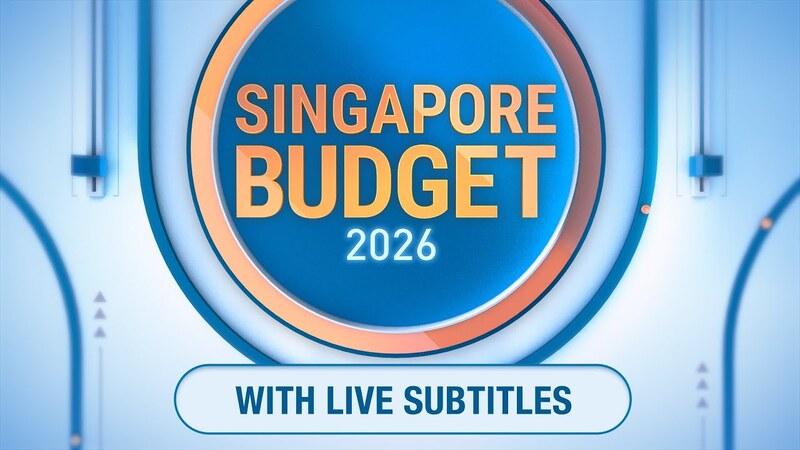Singapore Budget 2023 Highlights
On 14 February 2023, Deputy Prime Minister and Finance Minister Lawrence Wong delivered the Singapore Budget 2023: ”Moving Forward in a New Era” in Parliament. In his two-hour long speech, DPM Wong tackled a whole host of issues including but not limited to inflationary pressures and housing woes. It was truly a Valentine’s Day present to all who had these concerns at the forefront of their minds.
Despite numerous macroeconomic uncertainties, Singapore’s economy grew by 3.6% in 2022—and the resident unemployment rate dipped below pre-pandemic levels to 2.8% last December. DPM Wong announced that the Government expects positive economic growth in 2023, albeit at a slower rate of 0.5% to 2.5%. To ensure Singapore’s competitiveness in the global economy, a SGD$104.2 billion Budget was unveiled.
Here are 5 key highlights from Budget 2023 which are particularly relevant to companies and jobseekers in Singapore:
1. National Productivity Fund
Currently used for a wide range of productivity enhancement as well as continuing education and training measures, the National Productivity Fund will be topped up with an additional S$4 billion. Its scope will also be expanded, with investment promotion now included as a supportable activity.
According to DPM Wong, Singapore cannot “afford to be complacent” and must “redouble [her] efforts to attract high-quality investments”. These efforts of supporting companies to build new capabilities and strengthen our domestic ecosystems will translate into better-paying jobs for Singaporeans.
2. Enterprise Innovation Scheme
A new Enterprise Innovation Scheme has been introduced in Budget 2023. This Scheme seeks to enhance tax deductions for five key activities (e.g. R&D conducted in Singapore and registration of intellectual property) in the innovation value chain. Companies will receive tax deductions of up to 400% of qualifying expenditure incurred for each activity annually—a significant increase from the past deductions which were capped at 250%.
In his Budget 2023 speech, DPM Wong stressed the importance of nurturing and sustaining “pervasive innovation across the economy”. With the newly introduced Enterprise Innovation Scheme, the Government hopes to mitigate some risks companies bear whilst undertaking innovation in a period of slower growth and higher costs.
3. Jobs-Skills Integrators
The Jobs-Skills Integrators are entities appointed and equipped by the Government to be labour market intermediaries. They can either be new or existing institutions like trade associations and chambers. Their role is to work with industry, training and employment facilitation partners in order to optimise training and job placement.
DPM Wong announced that the Jobs-Skills Integrators will be piloted in sectors with “higher concentrations of mature workers and SMEs”, such as the Precision Engineering, Retail, and Wholesale Trade sectors.
4. Central Provident Fund (CPF) Changes
The CPF monthly salary ceiling for all local employees will be increased from $6,000 to $8,000. This increase will take place incrementally from 2023 to 2026, so as to give both employers and employees time to adjust.
DPM Wong stated that the intent of the CPF ceiling increase is to “help middle-income Singaporeans save more for their retirement”. Improving retirement adequacy is crucial as Singapore is faced with a rapidly ageing population.
In a similar vein, the Government will continue raising employer and employee CPF contribution rates for employees aged above 55 to 70 from 1 January 2024. Much like previous increases, the raise will be fully allocated to the senior employees’ Special Account. Since this move results in an increase of business expenses, companies will be granted a CPF transition offset in 2024.
5. BEPS 2.0 and the Corporate Tax System
There will be a global minimum effective tax rate of 15% for large Singapore multinational enterprises (MNEs) from 2025. The implementation of this new tax rate is in accordance with Pillar 2 of the Base Erosion and Profit Shifting initiative (BEPS 2.0), which seeks to align minimum global corporate tax rates for large MNE groups.
“As one united people, we can move forward with confidence in this new era, and shape a brighter future and a better Singapore together.”—DPM Lawrence Wong
Seeking your next career move?
Visit our job portal or Submit your CV.
Looking to hire?
We’ve put together a comprehensive toolkit to help you successfully hire the right person for your open positions.
To receive Your Guide to Recruiting Top Talent, please fill in this Inquiry form and let us know in the Message Box!





